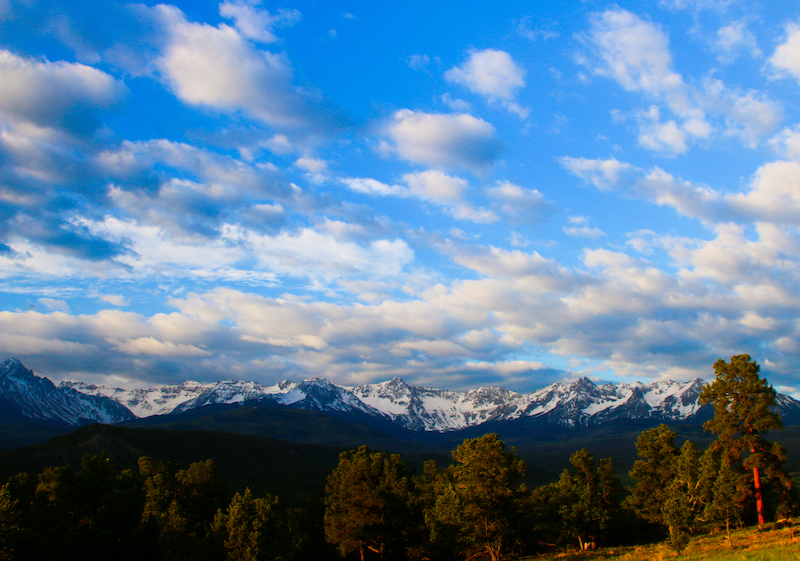Excavating Happiness
The great promise of meditative mindfulness is that peace and tranquility already exist; that they are within you right now and in every prior and future now. At first, I met this claim with curious skepticism. If they are already here, why can’t I feel them? If I am so full of goodness and beauty, why do I often feel like crap? After hundreds of hours of contemplation, the answer appears to reside in a simple yet powerful truth: we are living in an artificial world under the illusion of connection in violation of natural truth resulting in chronic moral suffering. We know what is right, but we are living wrong. The good news is we are in complete control and, therefore, can change all of it. We can move from what the writer, historian, and activist Rebecca Solnit calls moral injury to moral beauty.
First, we must recognize the problem. As many, like Harvard’s Steven Pinker argues, the data suggests things have never been better. Measurements of wealth and welfare nearly all support the argument that because of our rapidly expanding capabilities over the last few hundred years, the lives we lead are longer, healthier, and more productive than any lived by our ancestors. Common sense suggests we should, therefore, be happier. But, by many other measures we aren’t nearly as content as those in the 17th, 18th, and 19th centuries whose daily lives were much more difficult. In the Happiness Index that ranks countries around the world, none of the wealthiest countries ranks in the top ten. Number 1? Finland. The fundamental problem is that our pursuit of success—measured in traditional terms—has limited positive impact on our happiness and, in many respects, may even be detrimental.
As Solnit observes,
Look closely, and you can see that by measures other than goods and money, we are impoverished. Even the affluent live in a world where confidence in the future, and in the society and institutions around us, is fading—and where a sense of security, social connectedness, mental and physical health, and other measures of well-being are often dismal.
To address the problem, we must first realize that we have created this world. The incentives we have structured in our marketplace of success and the feel-good receptors we have allowed to define our egos are born from the same psychic infrastructure that favors exploitation over altruism, isolation over connection, and conflict over cooperation. Of course, inasmuch as we created this world, we can un-create it, too. In other words, as I often remind my children, the second rule of life applies: it is up to us. (The first rule is: shit happens.)
Exploitation rose naturally from the reality of scarcity. Survival meant realizing that there were only so many pieces of pie to go around. Under the condition of scarcity, us vs. them, and zero-sum game theory were prevalent and legitimate constructs. But things changed in the late 20th century. This is where we must heed Pinker’s argument of greater welfare. The fundamental shift that occurred was from scarcity to abundance. The culmination of the productivity of the industrial era and the transition from an analog world to a digital world meant that win-lose could become win-win.
This is when we should have shifted our thinking from exploitation to altruism, but we didn’t. We should have transitioned from coercive power to referential power where we accumulate power by the extent to which we serve the interests of others. If we had, we would all be better off and be able to meet the challenges of the day, like poverty, the pandemic, and climate change. Instead, we stayed the course allowing both power and wealth to intensify in their concentration within a small percentage of the population. The shame belongs not on the heads of the have-nots (as many politicians would assert), it belongs on the heads of the haves. And, please note: the exploitation I speak of is not confined (as some may quickly judge) to capitalism. There is just as much if not more exploitation in socialist and authoritarian regimes. If anything, capitalist democracies hurdled scarcity first making way for the benefits of abundance. Regardless, none of us were wise enough to fully understand the implications of this shift. In that moment, we missed an enormous opportunity to reshape our world.
We have also become hostage to our preference for isolation. America is a country that has always celebrated independence. After all, it is called the Declaration of Independence and the Fourth of July is known as Independence Day for good reason. Our most fundamental birthright is the right to self-determination. Unity has always been subverted by our preference for independence—for separation from each other—for isolation. In fact, it is only under dire circumstances that we ever come together, usually when attacked by a foreign actor, as in 9/11. Most recently, even a deadly pandemic that put everyone’s life at risk regardless of social, political, or economic standing, became a divisive event that produced profound disunity. We Americans much prefer, “you be you and I’ll be me” and, moreover, leave me the hell alone. This is the quintessential American.
Our penchant for independence and individualism served us well until it didn’t. A curious and unfortunate coincidence occurred at the time of our shift from scarcity to abundance. As I argued in Saving America in the Age of Deceit, in the late twentieth century, in particular after the collapse of the Soviet Union, “individualism, or the notion that Americans were possessed of free will and took responsibility for its expression thereof, was replaced by narcissism.” Our hyper-individualism turned us into churlish prigs. So full of triumphalism, we even stopped taking pictures of others and landscapes in favor of our own headshots to celebrate our self-perceived magnificence. Selfies became exhibit number one of our many narcissisms. This is where socialist democracies did indeed have an advantage over capitalist democracies (see quasi-socialist #1 Finland, above).
However, our isolationist tendencies expressed as hyper-individualism has proven most damaging in our separation from the natural world. As I have argued before, perceiving ourselves as separate from nature may prove to be the proximate cause of the collapse of Homo Sapiens. One of the by-products of the industrial age is that through the -ification and -ization of everything, humans have placed systems of subjugation between themselves and nature in a perverted master-slave relationship. Make no mistake, this relationship, if pursued to its ends will result in the end of humanity. It is, as many prophets, gurus, sages, and gods have claimed over the millennia, a noble truth that nature rewards harmony and punishes dissonance. If humans remain dissonant, we will (to use Charles Darwin’s phrase) be “selected against.”
Another teaching of meditative mindfulness is the toxicity of conflict. Virtually all spiritual teachers, regardless of tradition or heritage agree that things like desire and attendant conflict are the root of all suffering. Humanity has been burdened by conflict since inception. This, too, is partially a product of scarcity, yet the greatest civilizations would have never become great without the implementation of cooperation. From the hunter-gatherers to the industrial age, specialization and the division of labor has proven far superior to going it alone. Of this, both Adam Smith and Karl Marx agree. Among other things, this practice resides at the core of the strength of capitalism which, notwithstanding its propensity to concentrate power and wealth, is undoubtedly the most efficient system to organize and deploy capital and labor for the production of wealth. Capitalism excels at production. Where it falls short is distribution, which threatens other important principles including the basic norms of democracies.
Again, somewhat ironically, our shift from scarcity to abundance was accompanied not just by the ascendence of narcissism, but also by the rise of hubris. We doubled down on conflict and competition right when we should have shifted to higher modes of cooperation. And, not just by and between nations, but by and between races, political parties, religious traditions, and even gender. Our preference for exploitation, isolation, and conflict is tearing us apart both internally and externally; it is why we often feel like crap. Moral suffering has become an endemic condition in America and much of the world even while we live in the first era of abundance in the history of humankind. How stupid is that?
To move from the condition of suffering to happiness—from Solnit’s contemplation of moral injury to moral beauty—is, therefore, within our grasp. Win-win and plus-sum game theory must become prominent modalities. Coercion must give way to altruism. We must choose harmony over dissonance between ourselves and with nature. Only then can we achieve both internal and external consonance. Only then will we switch to right from wrong. Only then can the peace and tranquility that has been buried beneath our egos be excavated to assure both our happiness and our survival.
The first rule of life still applies: shit happens. But the second rule also holds: the rest of everything else is up to us.










